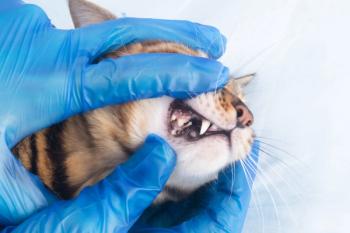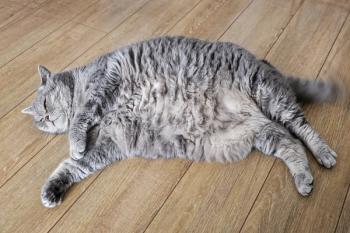
Journal Scan: Does lysine help or hinder?
Study claims lysine supplementation is ineffective for treating and preventing feline herpesvirus infection.
Getty ImagesWhy they did it
Use of lysine supplementation has been recommended for the prevention and treatment of feline herpesvirus-1 (FHV-1) infection, but the scientific basis for this recommendation is unclear. Lysine is thought to act by reducing arginine concentrations and therefore curtailing viral replication and shedding of the herpesvirus, but the exact mechanism for this remains poorly understood.
What they did
The authors of this study conducted a systematic review of the available literature to assess results from in vitro studies and clinical trials on the effect of lysine in both feline and human patients with herpesvirus (HHV-1). A total of 17 publications were included in the qualitative analysis, which included two in vitro studies with FHV-1, five clinical trials with cats, three in vitro studies with HHV-1 and seven clinical trials with humans.
What they found
Among the in vitro studies specifically looking at FHV-1, the researchers noted that lysine did not inhibit viral replication at any of the tested lysine concentrations. The authors note, however, that variable lysine concentrations and the use of culture media with subnormal arginine concentrations likely contributed to unreliable data. The use of culture media with arginine concentrations that more closely resembled in vivo feline physiology may have provided a more accurate result.
Among the clinical studies evaluated, the effect of feeding lysine-enriched foods to cats did not prevent or reduce ocular shedding of FHV-1. While some improvement in conjunctivitis was noted early on among cats that received lysine in one study, this effect was not durable throughout the study period. Interestingly, some studies actually demonstrated an increase in clinical severity among cats that were receiving lysine supplementation.
The authors note that because arginine is an essential amino acid for cats, which is necessary for normal urea cycle function, attempting to decrease arginine concentrations may actually have a negative impact on cat health and should be avoided.
Take-home message
Lysine supplementation was not found to be effective for treating or preventing FHV-1 and, moreover, may cause harm by decreasing arginine concentrations. The authors recommend an immediate stop of lysine supplementation for cats.
Bol S, Bunnik EM. Lysine supplementation is not effective for the prevention or treatment of feline herpesvirus 1 infection in cats: a systematic review. BMC Vet Res 2015;11:281. To link to the article,
Newsletter
From exam room tips to practice management insights, get trusted veterinary news delivered straight to your inbox—subscribe to dvm360.






